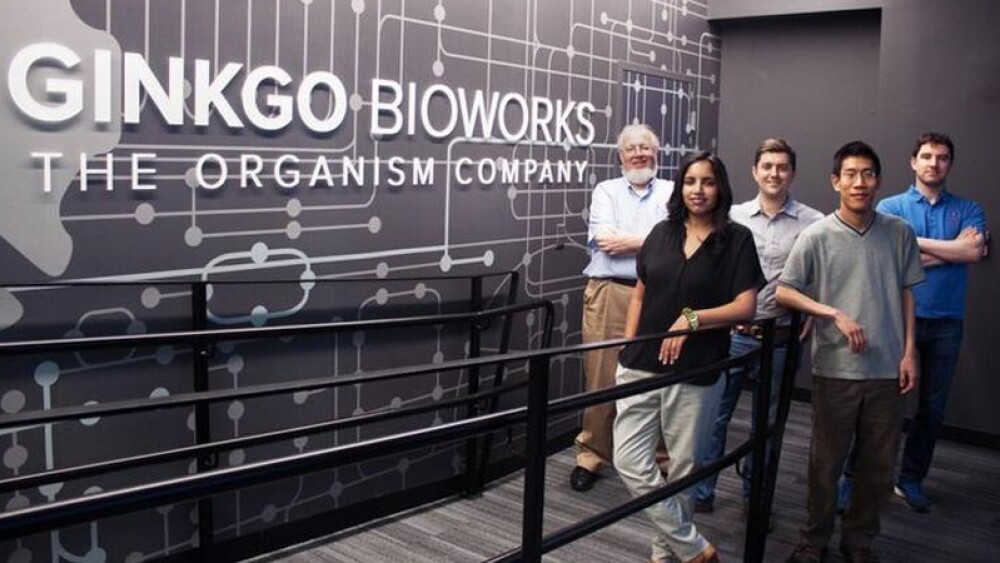September 15, 2016
By Alex Keown, BioSpace.com Breaking News Staff
BOSTON – As microbe-engineering company Ginkgo BioWorks goes on a hiring spree following the securing of $100 million in funding, engineers from the company are engaging in a new kind of experiment—brewing beer.
The company is getting ready to throw an office party and some homebrew aficionados at the company are literally bringing their work home with them. This week the Boston Globe highlighted the brewing effort because one of the yeast strains the brewers were using was created at Ginkgo. The scientists at Ginkgo developed yeast genes “to produce valencene, a natural flavoring that supplies a citrusy scent.”
Ginkgo Bioworks delivers designer organisms for its customers, using engineered microbes to manufacture cultured ingredients such as flavors, fragrances, cosmetics and sweeteners. Bioworks1, the company foundry, uses proprietary software and robotics to streamline the design, construction and testing of engineered organisms.
With its focus on the development of designer organisms, brewing beer is right up the alley for company engineers. The Globe noted Emily Greenhagem, Ginkgo’s director of fermentation engineering, is the co-owner of a craft beermaking company outside of Boston called Mystic Brewery.
One of the aspects of the use of Ginkgo’s yeast in the brewing, beyond making it unique to the company for its party, is that the company-developed yeast could actually make homebrewing a bit cheaper. The Globe noted the strain of yeast “produces the kind of flavor and aroma chemicals, called terpenes, that are usually only found in plants” – which can be less expensive that purchasing hops from a brewing supply store.
Over the past two years, Ginkgo has secured $154 million in private investments. The funds are being used to fuel the company’s growth into new markets, including commodity chemicals, industrial enzymes and human health markets. Additionally, Ginkgo said the money will aid in the building of its next-generation automated foundry, Bioworks2, where Ginkgo’s organism engineers “can develop new designs at massive scale.”
In addition to engineering its own organisms, Ginkgo Bioworks has been cultivating relationships with synthetic DNA providers to grow its business. In June, Ginkgo struck deals with Twist Biosciences and Gen9 for 600 million base pairs of manufactured DNA—the largest supply of DNA ever purchased. The synthetic DNA is the raw material for Ginkgo’s biological prototypes, and will be used to generate genetic designs that will be built and tested in Ginkgo’s new foundry, Bioworks2.
Just this morning Ginkgo was tapped by Cargill, a global provider of food, agriculture, financial and industrial products, to explore strain improvements to optimize Cargill’s bioindustrial fermentations.
“Partnering with Ginkgo Bioworks allows us to improve our fermentation technology, create a better product for our customers, and continue to accelerate our exploration of the unchartered territory in the bioindustrial arena, Jill Zullo, Cargill’s North America vice president of bioindustrials, said in a statement.
For the engineers at Ginkgo, homebrewing beer is akin to the development of new biological organisms. Christina Agapakis, Ginkgo’s creative director, told the Globe the company’s work is “all about fermentation.”
“Biology is just an incredible way to make stuff,” Agapakis told the Globe.
While staff members are growing yeast to make beer, the company is growing and making new jobs. Ginkgo’s website lists dozens of positions around Boston, including various engineer and chemist positions.





